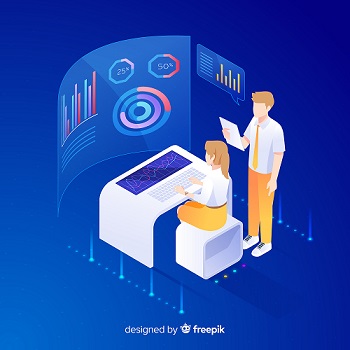
Below are the highlights of possible developments and innovations in data annotation services. However, it should be stated that the field is dynamic and that new developments might have taken place since then. Here are some anticipated trends and innovations in the future of data annotation services:
1. Automation and AI Integration:
The use of AI and ML algorithms would likely be integrated into the annotating process. Automation can speed up annotating large datasets, minimize expenses, and enhance effectiveness.
2. Semi-Supervised and Self-Supervised Learning:
There is also the possibility for semi-supervised learning techniques where models are trained with a mix of labeled and unlabeled data to become more common. Additionally, self-supervised learning, which is about training models with automatically generated labels, may catch on.
3. Advanced Annotation Techniques:
3D point cloud annotation, video extension and multilateral modality, for example, combining texts and images, will accord such a moment if the applications comes out like autonomous vehicles and robotics, where they will require more diverse and composite datasets
4. Human-in-the-Loop (HITL) Annotation:
The human-in-the loop approach, where machine learning algorithms are used along with human annotators, is likely to keep changing. This method guarantees quality annotations, especially in cases where human judgment and context are very important.
5. Privacy-Preserving Annotation:
Considering the issues of data privacy, there can be a higher interest in creating annotation methods that help to label the datasets properly without accessing confidential details. 6. Crowdsourcing and Collaborative Annotation Platforms:
Advanced platforms for crowdsourcing may enable multiple annotators to collaborate on a global scale. Better annotation management and validation tools from distributed teams could improve accuracy and response times.
7. Quality Assurance and Benchmarking:
Mechanisms of enhanced quality assurance, such as automatic annotation validation tools and benchmarking systems, may be implemented to verify the accuracy and consistency of labeled data sets.
8. Customization and Industry-Specific Solutions:
There may be increased demand for data annotation services specific to certain industries and applications, such as healthcare, agriculture, or manufacturing. More accurate and relevant annotations can be obtained by customizing based on the unique requirements of different sectors.
9. Regulatory Compliance:
As data ethics and regulations become more prominent, it could be necessary for the providers of data annotation services to follow certain standards as well as compliance measures so that they may ensure proper processing and labeling of the information.
10. Blockchain for Data Annotation Transparency:
It could consider blockchain technology for developing transparent and tamper-proof records of data annotations. This can improve traceability and accountability in the annotation process.
However, keep in mind that the field of data annotation is not static and developing technologies and trends can shape its future. Involvement in data annotation services involves staying updated on industry developments and technological advancements.
Read more about our data annotation services.
Contact us for your annotation requirements.







Recent Comments